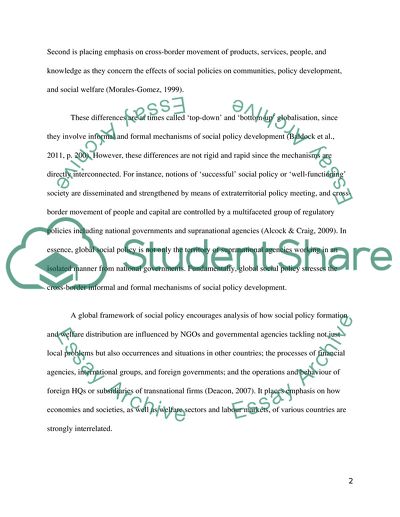Cite this document
(“Challenges to Social Policy in Relation to Globalisation Essay”, n.d.)
Challenges to Social Policy in Relation to Globalisation Essay. Retrieved from https://studentshare.org/social-science/1636123-discuss-the-challenges-to-social-policy-in-relation-to-globalisation
Challenges to Social Policy in Relation to Globalisation Essay. Retrieved from https://studentshare.org/social-science/1636123-discuss-the-challenges-to-social-policy-in-relation-to-globalisation
(Challenges to Social Policy in Relation to Globalisation Essay)
Challenges to Social Policy in Relation to Globalisation Essay. https://studentshare.org/social-science/1636123-discuss-the-challenges-to-social-policy-in-relation-to-globalisation.
Challenges to Social Policy in Relation to Globalisation Essay. https://studentshare.org/social-science/1636123-discuss-the-challenges-to-social-policy-in-relation-to-globalisation.
“Challenges to Social Policy in Relation to Globalisation Essay”, n.d. https://studentshare.org/social-science/1636123-discuss-the-challenges-to-social-policy-in-relation-to-globalisation.


